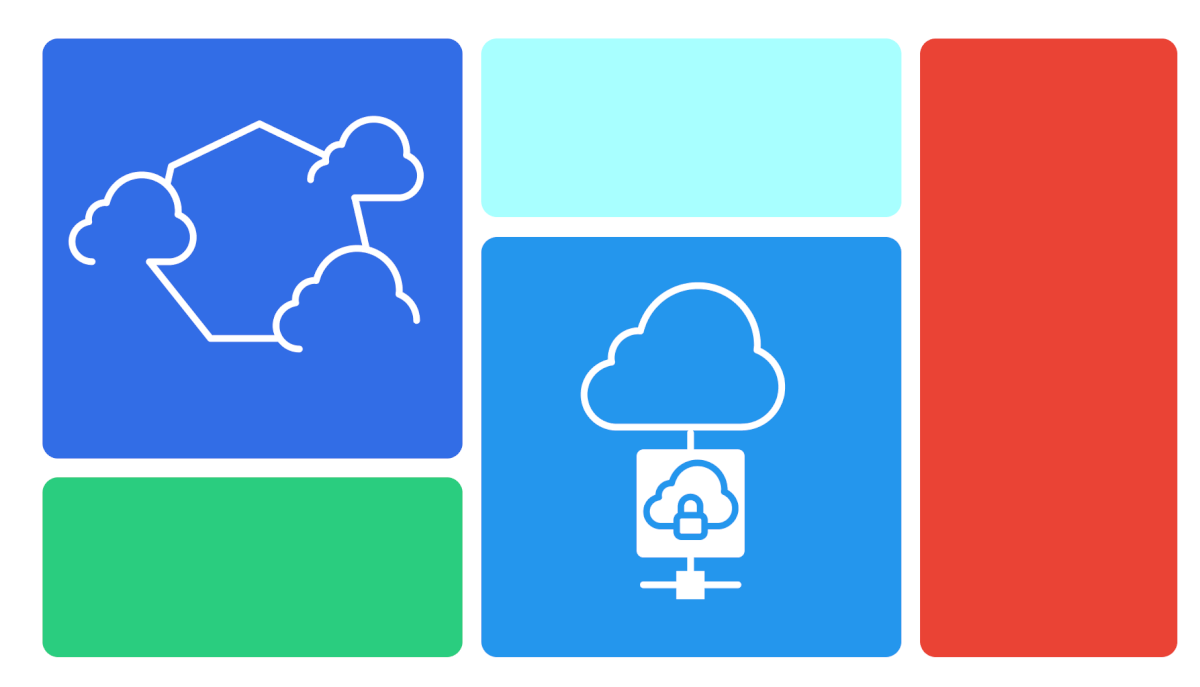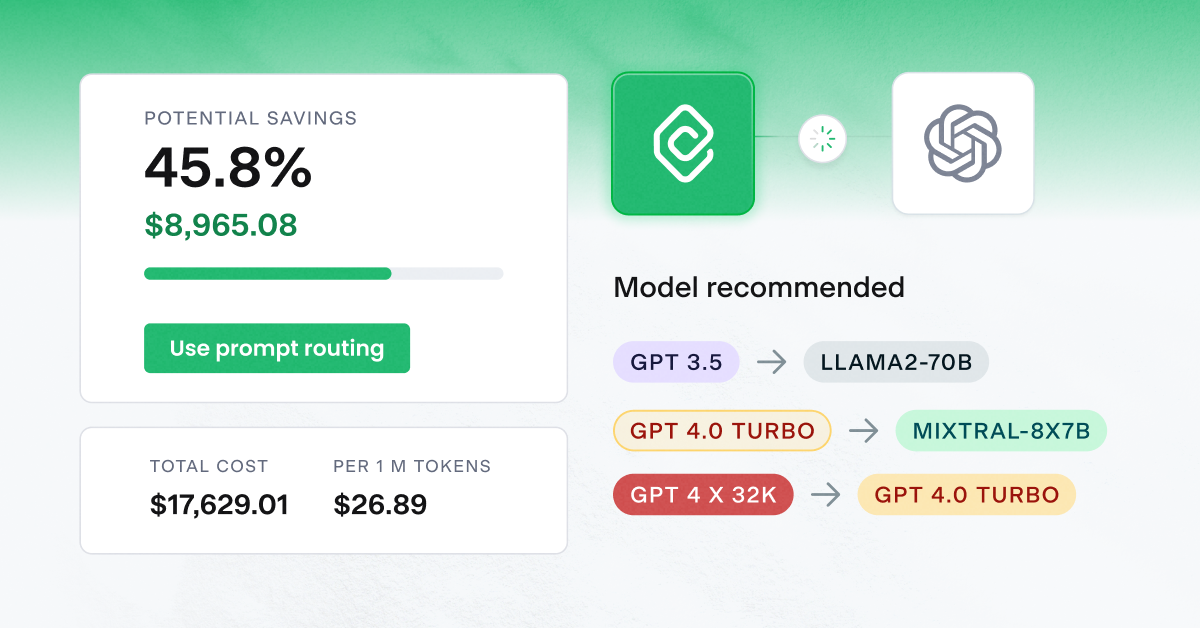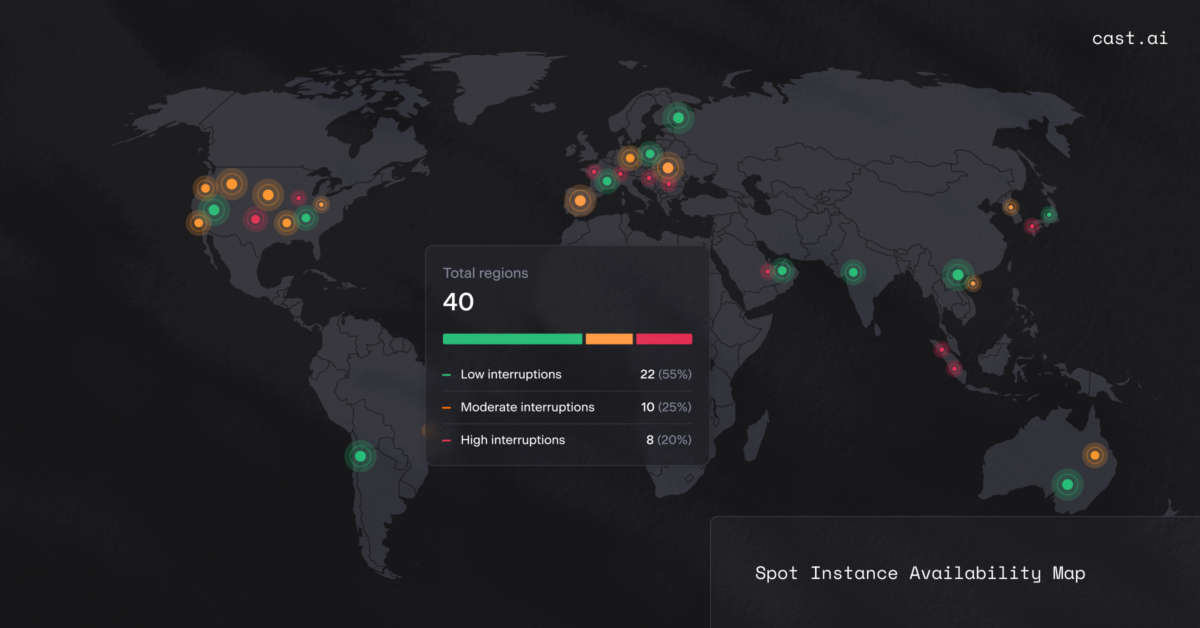Public cloud isn’t a silver bullet that can address every single use case.

To solve this problem, some organizations bring cloud computing in-house and opt for a private cloud model. This scenario is called a hybrid cloud.
Others try to expand their public cloud with multi cloud capabilities. Already 93 percent of enterprises declare having a multi cloud strategy. Most use four cloud services on average.
But what’s the difference between multi cloud vs. hybrid cloud? Is “multi cloud” just another buzzword?
Read this article to find out.
Table of contents:
- What is hybrid cloud?
- What is multi cloud?
- Which type of cloud deployment should I use?
- Multi cloud is the path to resilience
What is hybrid cloud?
A hybrid cloud brings together public cloud computing with a private cloud platform or on-premises infrastructures like an internal data center or any other type of IT infrastructure that runs within the corporate network.
This already marks a difference between hybrid cloud and multi cloud. While hybrid always consists of private and public cloud components, multi cloud includes multiple public cloud services (it can also use physical and virtual infrastructures like private clouds).
In a multi cloud model, different clouds are usually used for different tasks. In hybrid clouds, different components usually work together – the processes and data intersect in a hybrid environment.
When do companies use it?
- Some organizations often choose to experiment with public cloud and migrate partly, often to find out that it’s too expensive or resource-intensive to enable full adoption.
- Others continue to host some processes, business logic, and data in legacy on-premises infrastructure while moving to the cloud in other areas.
- Finally, some companies adopt a hybrid cloud strategy to keep some processes and data in a private cloud or on-premises data center that offers a more controlled environment but benefit from the low overhead of public cloud services in other business areas.
Benefits of a hybrid infrastructure
Successful hybrid cloud environments offer the following advantages:
- Persistent and secure high-speed connectivity between the company and the cloud environment,
- One centralized identity infrastructure that works across multiple cloud environments,
- Well-integrated networking that extends the corporate network securely and creates one segmented network infrastructure,
- A unified platform for easy cloud monitoring and resource management.
Challenges of hybrid cloud
Separating cloud environments from traditional data centers might sound great to many companies looking to minimize the disruption caused by introducing brand-new tools.
But achieving a successful hybrid cloud deployment is challenging. Hybrid cloud often leads to more complexity because companies need to perform an increasing number of functions in multiple environments at the same time.
Organizations can choose from different approaches to building hybrid cloud architectures, but it’s important to pick one that anticipates the need to deploy integrated platforms wherever necessary.
What is multi cloud?
In a multi cloud deployment, a company uses two or more different public cloud services coming from various providers. Those different clouds can be used for various tasks to gain best-of-breed services, optimize costs, and reduce vendor lock-in.
In a multi cloud deployment, organizations can distribute their workloads independently of the underlying vendor infrastructure.
At CAST AI, we believe that multi cloud should mean that companies can use several cloud platforms to support a single application in the best possible way. By using our solution, developers can run their Kubernetes containerized application on any mix of cloud providers at the same time.
When do companies use it?
- Not all clouds are created equal, and different company departments or teams often have different needs. For example, a Sales department has completely different cloud needs than a Software Development department. Using multiple cloud solutions allows meeting these requirements more effectively.
- Avoiding vendor lock-in is another key motivation behind multi cloud strategies today. By using more than one cloud service, organizations minimize their dependence on a single provider. This allows them to be more flexible, achieve an optimal balance between cost and performance, and become more innovative (we shared more thoughts on this here: It’s about time cloud providers stop limiting innovation).
Benefits of using multiple clouds
1. Cost reduction
Organizations with multi cloud deployments can compare different offers and secure the best ones in line with their continually changing needs. In this approach, they’re no longer limited to the terms and pricing set by a single provider.
You can finally choose those vendors who offer the exact terms they’re looking for, such as adjustable contracts, flexible payments, or customizable capacity.
2. Security
Multi cloud deployments allow companies to choose cloud providers who use battle-tested security practices for protecting their data and applications.
That way, organizations know that their infrastructure security measures protect applications as they grow and evolve.
By going multi cloud and using a solution like CAST AI, companies can switch providers at any time and find a better match in terms of security instantly.
3. Avoiding vendor lock-in
We know this pain at CAST AI. By setting up a multi cloud deployment with our solution, you’re no longer locked in with a cloud service provider.
Switching from one cloud provider to another is fast and easy. That way, companies can get the most value from their investment in cloud computing and storage.
4. Access to best of breed solutions
To reap the full benefits of the cloud, organizations need to be able to take advantage of the best services and features.
To accomplish that in a multi cloud setting, they select a primary cloud provider (the core of cloud operations) with the second or third provider for extra value or carry out a specific task.
For example, a company can perform machine learning training on the second cloud provider, in particular, if the source data are publicly available. Then the company can bring the results over to the primary cloud to build and deploy applications.
5. Resilience
Multi cloud is a great method for protecting critical business applications and data from downtime. Such deployments usually come with solid backup and recovery capabilities. This is how companies achieve business continuity during emergencies and prevent downtime.
A multi cloud disaster recovery strategy is something organizations can rely on with full confidence.
Challenges of multi cloud
- Unclear costs – comparing providers and understanding the cost implications of every option isn’t easy because of the lack of visibility in offers. Not to mention the fact that costs aren’t static and tend to change over time.
- No visibility – companies often end up wasting as much as 30% of their cloud spend. Providers don’t make comparing different clouds easier, and navigating the differences in hosting and services is hard.
- Hidden details – when you thought you knew everything, some things might surprise you. For example, one vCPU core might not work just like the same core listed on a different plan.
How to address those challenges? Find out the solution here: How to compare the cost of AWS, Azure, Google and Oracle, once and for all
Which type of cloud deployment should I use?
The choice between multi cloud vs. hybrid cloud depends on a number of factors:
Cost
The primary benefit of using public clouds is that they come with less overhead and direct management than other types of infrastructure.
The provider will be the one to handle most, if not all, of the responsibilities for maintaining a data center, such as applying security updates or provisioning servers. If cost is a deciding factor for you, a fully public multi cloud deployment is a good choice.
Security
If your business has to meet high regulatory standards for any subset of your data or business logic, a hybrid cloud deployment is a good pick. A hybrid cloud allows keeping some data in a more tightly controlled environment (a private cloud or on-premises data center).
However, note that these environments aren’t always more secure. Public cloud vendors have more cybersecurity resources available for security measures like applying patches and protecting data than an individual company.
Ease of cloud migration
Consider the time and effort you’d have to spend on a cloud migration. Moving data and applications to the cloud is a resource-intensive task (but definitely worth the effort).
However, if you feel that your business isn’t ready for it yet, adopting a hybrid cloud strategy might be a better option.
Vendor lock-in
By using multiple public clouds, you get to reduce your dependence on one cloud vendor. If this is important to you, a multi cloud deployment is definitely the right solution.
High availability
By deploying multiple clouds, you can keep your applications running during periods of high user demand.
In a multi cloud deployment, a backup cloud can be used to take on some of the workloads if the first cloud becomes overwhelmed.
Multi cloud is the path to resilience
Cloud outages happen even to the leading cloud service providers. And they always have far-reaching consequences for your finances and reputation.
How to prevent this from happening and ensure high availability of your infra?
One method is replicating large parts of your infrastructure and workloads in two places. But this is very expensive.
We have a better solution at CAST AI – and it doesn’t increase your cloud bill. We protect workloads from downtime by stretching Kubernetes clusters across multiple cloud services. When one cloud goes down, your business continues to operate because our platform instantly replaces your workloads and data across multiple clouds.
Sign up here to protect your workloads and reap the cost benefits of multi cloud.





Leave a reply
Appreciate the recommendation! Let me try it out.
Keep working, great job!
Hybrid Cloud Comapnies in India
Appreciate the recommendation! Let me try it out.
Keep working, great job!